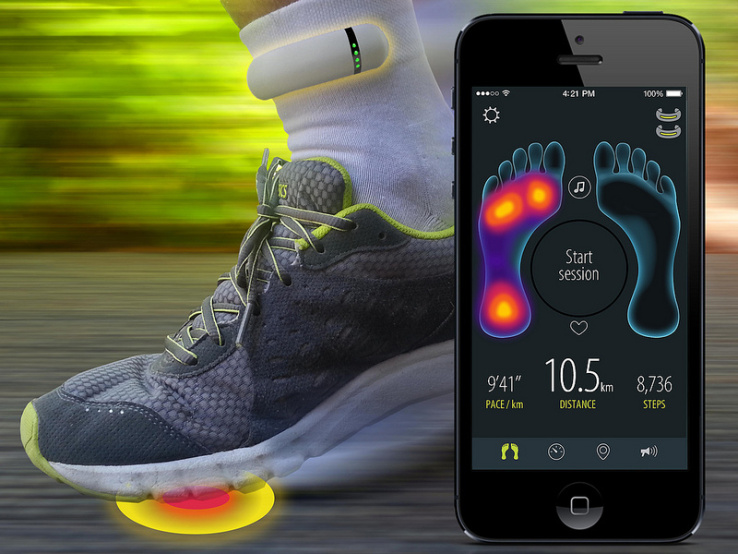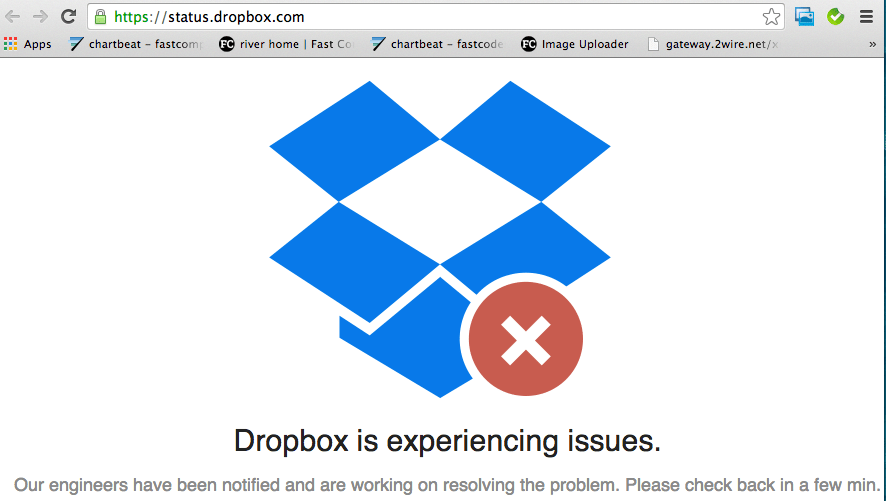Post by Best Of Youtube.
THE ANDROID'S LIST
Bring you the Latest information In Android News
Saturday, January 25, 2014
Wednesday, January 22, 2014
Put Some (Fake) Planets on Your Desktop with These Wallpapers
Put Some (Fake) Planets on Your Desktop with These Wallpapers
Pictures of space are awesome. But if our solar system isn't quite exciting enough for you—what with the lack of planets crashing into each other and exploding into giant balls of fire—these abstract space wallpapers should keep you happy.
Read more...







Whitson Gordon
Wed, 22 Jan 2014 21:00:00 GMT
Man Subjected To Multiple Rectal Searches And Enemas By Police Officers Receives $1.6 Million Settlement
David Eckert, the Deming, NM man who was subjected to hours of invasive anal "searches" by two police officers (and a very compliant hospital staff), has received a settlement from two of the entities named in his lawsuit. For those of you who don't remember what Eckert went through in order to "produce" drugs he simply didn't have, here's the rundown.

Man Subjected To Multiple Rectal Searches And Enemas By Police Officers Receives $1.6 Million Settlement
Tim Cushing
Wed, 22 Jan 2014 13:45:00 GMT
Netflix Downplays Court’s Net Neutrality Decision, Says Internet Providers Unlikely To Act
Netflix Downplays Court’s Net Neutrality Decision, Says Internet Providers Unlikely To Act
In the letter to shareholders that accompanied today’s earnings report, Netflix addresses the recent circuit court decision that was seen as a threat to net neutrality.
That decision could potentially be a problem for Netflix, because it could provide legal justification for Internet providers to reduce the speed at which Netflix video content is delivered unless the company pays the providers. As the letter (which specifically calls out Verizon for challenging net neutrality in court) puts it: “In principle, a domestic ISP now can legally impede the video streams that members request from Netflix, degrading the experience we jointly provide. The motivation could be to get Netflix to pay fees to stop this degradation.”
If that happens, Netflix says it would “vigorously protest,” but the company suggests that things probably won’t go that far. The letter, which is signed by CEO Reed Hastings (pictured) and CFO David Wells, argues it’s more likely that “ISPs will avoid this consumer-unfriendly path of discrimination”:
ISPs are generally aware of the broad public support for net neutrality and don’t want to galvanize government action.Again, this is a letter to shareholders, and in that context, it’s not surprising that Netflix wants to downplay worries that might lower the stock price. But there’s been other coverage suggesting that this isn’t as big a threat to Netflix as we might think. The Atlantic, for example, ran an article titled “No, Netflix Is Not Doomed By the Net Neutrality Decision“.
Moreover, ISPs have very profitable broadband businesses they want to expand. Consumers purchase higher bandwidth packages mostly for one reason: high-quality streaming video. ISPs appear to recognize this and many of them are working closely with us and other streaming video services to enable the ISPs subscribers to more consistently get the high-quality streaming video consumers desire.
As for whether more laws are required to protect net neutrality, the letter argues that “less regulation is warranted” if Internet providers “adhere to a meaningful voluntary code of conduct,” while more regulation would be needed if they actually start “impeding specific data flows.”
[image via flickr/James Davidson]

Anthony Ha
Wed, 22 Jan 2014 21:40:59 GMT
Saturday, January 11, 2014
How to Watch YouTube in the Background on Android
You are watching or rather listening to a music video on YouTube but are distracted by an email notification. You switch to the Gmail app to check your mail and, as expected, the YouTube video stops playing. You have to switch to the YouTube app again on your Android device to resume playback.How to Watch YouTube in the Background on Android
This is a limitation of the YouTube app on Android. It automatically stops video playback as soon as you move it to the background. The same is true for the YouTube mobile website as well. The videos will play as long as the web browser – be it Chrome or some other browser – is in focus. Switch to a different app and the video will pause itself.
The YouTube app for iPhone and iPad too impose a similar restriction but you can easily get around that limitation by playing YouTube videos inside the Safari browser (see: Play YouTube in the background on iOS).

Play Youtube in the Background on Android
The iOS trick however won’t work on Android but there exist even simple workarounds in the form of apps. The Google Play store has several apps that support background playback thus letting you use YouTube as a music player. I did try them all and here are my favorites:
The uListen app has a simple interface and minimal features which is what I like most about this app. Just use the search button to find videos and playlists on YouTube and hit the play button. You can also tap and hold a search result to favorite it or to add it to your playlist. uListen doesn’t link to your YouTube account and all your playlists and favorites are saved locally.
Then there are apps like SuperTube and Viral that more like clones of the official YouTube app except that they also let you watch or play YouTube videos while in the background. You can create local playlists or connect these apps to your main YouTube account and access your playlists, watch later queue and favorites. Another handy feature is that you can do a vertical swipe on the video to increase or decrease the volume.
Both Viral and SuperTube offer a floating video player which essentially means that you can pull out a YouTube video and place it over any other app. It’s like the Picture-In-Picture effect – you can read the New York Times in the browser and watch a movie on YouTube simultaneously. I prefer SuperTube more since it lets you choose a different video in the queue from the floating player itself.
A major downside of the previously mentioned uListen app is that it doesn’t offer autocomplete mode so you have to the type the entire search terms manually for relevant results. YT Player, another free YouTube audio player, fixes that problem. It pulls in search suggestions from YouTube and you can search for videos, playlists or even channels. If you prefer apps with slightly bigger fonts, you will probably like this one even more.
This story, How to Watch YouTube in the Background on Android, was originally published at Digital Inspiration on 10/01/2014 under Android, Music, YouTube, Internet
Amit Agarwal
Fri, 10 Jan 2014 07:59:20 GMT
I’ve Seen The Future Of Health Tech And It’s Going To Improve Your Life In 2014
I’ve Seen The Future Of Health Tech And It’s Going To Improve Your Life In 2014
I just returned from the most exciting Consumer Electronics Show I’ve ever covered. Thanks to extraordinary demand for gadgets that make us healthier, stronger, and smarter, the technology industry is putting some serious brain power behind the next generation of wearable health devices. Over the next year, a torrent of new devices is hitting the market to provide automated elite coaching, a pocket-sized clinical lab, and your own personal assistant.
Labs In Your Pocket
It seems that nearly every time I rush head-first into a new diet or exercise program, I find months later there’s some crucial oversight that’s holding back my progress or actively destroying my body. Exasperated in frustration, I drag myself to a clinic for expert diagnostics, only to discover simple advice I should have been following from the beginning.
Now, nearly every expensive lab test I’ve gotten over the past year is coming to the delightful convenience of my smartphone. The Sensoria smart sock correctly diagnosed that I make the runner’s rookie mistake of heel striking, leading to a workout-stopping knee pain (available this spring).
Valencell’s PerformTech in-ear heart-rate monitor calibrated my V02Max (a common measure of endurance) in a nearly painless five minutes of light stair-stepper work on the CES show floor (available now). The results were within 5 percent of lab-test results I received months earlier and helped me know that two months of running San Francisco’s hills are probably paying off.
Quality rest is just as important as hitting the gym. The Basis B1 wristwatch, Sleeprate app, and Withing’s Aura bed pad will diagnose the quality of the major stages of sleep, including crucial REM cycles.* I got a preview of Sleeprate’s heart-rate-monitor-powered app, and apparently I’ve got a nasty restless sleep cycle (Basis update coming January 21, Sleeprate January 23rd, and Aura in the spring).
Unlike a lab test, these devices can follow you wherever you go, ensuring you actually follow through with the advice. Many of us work so hard at self-improvement; it’s nice to know that our time isn’t going to waste.
Automated Elite Coaching
The defining feature of the world’s sharpest coaching minds is a broad novel strategy that is meticulously applied to each student. The delicious replicability of elite coaching makes it ripe for automation.
While last year was all about fitness gadgets that monitor activity, “what’s going to happen next is teaching technique,” said Ruth Thomason of Cambridge Consultants. Cambridge was showing off the ArcAid basketball free-throw technique video analyzer. Normally available to college sports teams with budgets larger than the entire Humanities Department, this kind of video technology could bring elite coaching to the masses.
The marathon-enthusiast fitness company, Polar, is releasing what claims to be the most advanced training watch on the market. The Polar V800 meticulously tracks heart rate to advise athletes when they’re overtraining, analyzed through a free online web app, Polar Flow (available in April).
There’s also hope for my fellow ADHD brethren: Interaxon’s Muse headband is like a mind-reading meditation coach. Using classic techniques from the field of neurofeedback, the behind-the-ear mounted EEG device measures brainwaves to coach users into a state of meditative peace. Unlike its competitor, Neurosky, which is mostly used for brain-controlled computing (and women who love to wear rotating cat ears in San Francisco), the muse will track improved mindfulness over time.
In the same way online education is bringing the teachings of world-class professors to anyone with an Internet connection, the future of health tech will be to essentially roboticize elite coaches in the devices we wear on our bodies.
The Digital Mother
“Sit up straight and brush your teeth!” Sometimes, we know exactly what we’re supposed to do, but just aren’t very good at following through. The latest health tech is here to gently nag you into better health.
The Lumo Lift is a vibrating shirt pin that buzzes whenever it detects slouched shoulders. It’s pretty much impossible to answer 5,000 emails a minute and remember to sit up straight for eight hours. This little guy helps you remember (available in the spring).
For objects around the house, the aptly named “Mother” device imbues everyday objects with the nagging power of our lovely moms. Sen.se’s Mother interacts with satellite “cookies” that know when and how an object is being used; for instance, whether a bottle of pills is being picked up and poured upside down. The same goes for a jar to water the plants (available in the spring).
2014 is going to be an exciting year for digital health. For years, technology has conspired to transform our upright bodies into hunched-back zombies. Now, it can make us all ubermen. Bring on the gadgets!

Gregory Ferenstein
Sun, 12 Jan 2014 02:00:01 GMT
Update: Alleged Dropbox Hack Is A Hoax, Website Is Back Up
Update: Alleged Dropbox Hack Is A Hoax, Website Is Back Up
Update: The alleged hack against Dropbox islooking more likeis an elaborate hoax, timed perfectly with the website’s incidental outage. As security researcher Wesley Mcgrew points out, the emails supposedly stolen from Dropbox have been found elsewhere on the web and a known Anonymous Twitter account is officially denying their involvement. Moreover, it seems the group claiming credit may incur the wrath of Anonymous, because they said the attack was in the name of fallen internet activist, Aaron Swartz.
Dropbox sent us this updated response, confirming the hoax:
“Dropbox site is back up.
In regards to claims of “leaked user information” – this is a hoax. This is not Dropbox data. The list was published 12/9/13 at: http://pastebin.com/64PAAV1c
Today’s outage was caused during internal maintenance, and was not caused by external factors. We apologize for any inconvenience.”
Our original story below:
Popular backup service Dropbox is offline and the hacktivist contingent, Anonymous, is claiming credit. “BREAKING NEWS: We have just compromised the @Dropbox Website http://bit.ly/1cMlbvt #hacked #compromised,” tweeted an alleged Anonymous Twitter account.
BREAKING NEWS: We have just compromised the @Dropbox Website bit.ly/1cMlbvt #hacked #compromisedDropbox seems to be denying their website was hacked: “We are aware of an issue currently affecting the Dropbox site. We have identified the cause, which was the result of an issue that arose during routine internal maintenance, and are working to fix this as soon as possible. We apologize for any inconvenience,” went a company blog post. [Update: Dropbox and has called us and is explicitly denying they have been hacked]
—
Anonymous (@AnonOpsKorea) January 11, 2014
If they were, indeed, hacked it’s not clear who is ultimately responsible. Another hacktivist group, 1775sec, is also claiming credit:
BREAKING NEWS: We have just compromised the @Dropbox Website dropbox.com #hacked #compromisedWe have reached out to Dropbox for more details and will update you on this story as details unfold.
—
The 1775 Sec (@1775Sec) January 11, 2014
Meanwhile, 1775sec and Anonymous have been mocking Dropbox’s denial and claiming the hack was done in the honor of fallen Internet activist, Aaron Swartz.
@YourAnonNews @Dropbox all in honor of Aaron Swartz! #rip1775sec also claims that they successfully stole a list of email addresses from Dropbox, which they posted on the website, pastebin.com.
—
The 1775 Sec (@1775Sec) January 11, 2014
Story is unfolding…

Gregory Ferenstein
Sat, 11 Jan 2014 03:06:32 GMT
Subscribe to:
Posts (Atom)